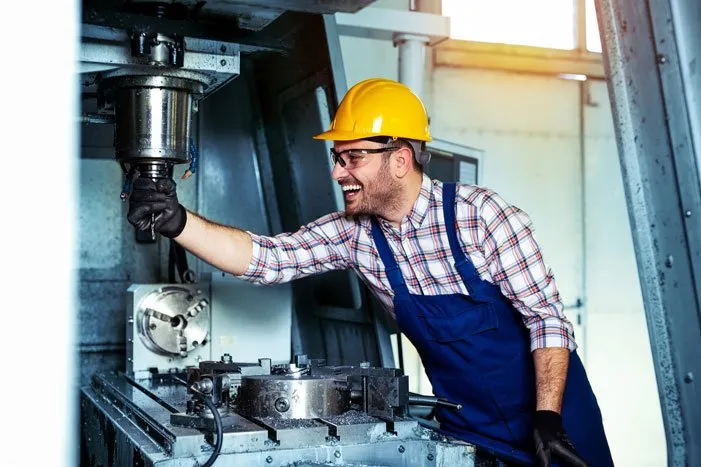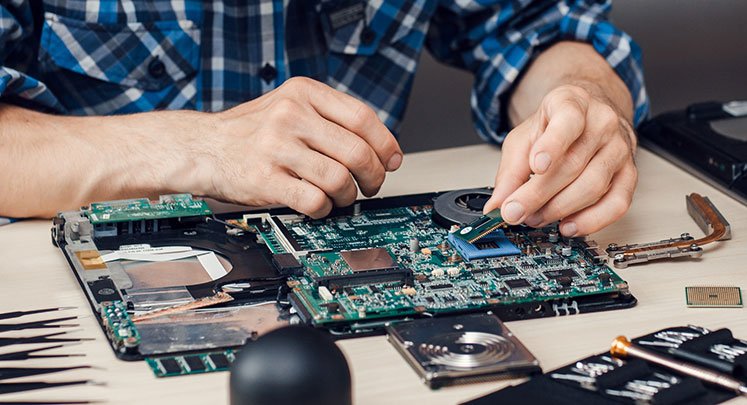CNC (Computer Numerical Control) machines have revolutionized the manufacturing industry by automating various production processes. These sophisticated machines are used for precision cutting, milling, drilling, and other operations in industries such as aerospace, automotive, electronics, and more. However, like any other machinery, CNC machines are also subject to wear and tear, and may require repairs over time. CNC machine repairs can be costly and can result in production downtime, leading to loss of productivity and revenue.
Understanding the Importance of CNC Machine Maintenance
CNC machines are complex pieces of equipment that require regular maintenance to function optimally. Neglecting maintenance can result in decreased performance, increased downtime, and costly repairs. Proper maintenance of CNC machines not only extends their lifespan but also helps in avoiding expensive repairs in the long run. Regular maintenance also ensures that the machine operates at its peak efficiency, producing high-quality parts and reducing the chances of errors. It is essential to understand the importance of CNC machine maintenance and to develop a comprehensive maintenance plan to avoid costly repairs.
Regular Cleaning and Lubrication
One of the simplest yet most crucial aspects of CNC machine maintenance is regular cleaning and lubrication. CNC machines generate a significant amount of metal chips, dust, and debris during operation, which can accumulate and cause damage to the machine’s components over time. It is essential to clean the machine thoroughly after each operation to remove any debris or chips from the working area, including the tool changer, spindle, and coolant system. Regular lubrication of the machine’s moving parts, such as linear guides, ball screws, and spindles, is also vital to ensure smooth operation and prevent wear and tear.
Monitoring and Replacing Worn-out Parts
CNC machines have numerous moving parts that are subject to wear and tear, including belts, bearings, gears, and motors. Regular monitoring of these components and timely replacement of worn-out parts is critical to avoid costly repairs. Monitoring can be done through regular inspections and measurements, as well as by keeping track of machine performance, such as accuracy, repeatability, and cutting speeds. Any deviation from the machine’s normal performance should be investigated promptly to identify and address potential issues before they escalate into costly repairs. It is essential to work closely with the machine manufacturer or a qualified technician to identify the expected lifespan of different machine components and develop a replacement schedule accordingly.
Keeping Software and Firmware Up-to-date
In addition to mechanical components, CNC machines also rely on sophisticated software and firmware to control their operations. Keeping the machine’s software and firmware up-to-date is crucial to ensure optimal performance and avoid potential issues. Software updates often include bug fixes, performance enhancements, and new features that can improve the machine’s efficiency and reliability. Firmware updates, on the other hand, are specific to the machine’s control system and can address issues related to motor control, communication, and safety. It is essential to work with the machine manufacturer or a qualified technician to regularly update the machine’s software and firmware to avoid costly CNC machine repairs caused by software-related issues.
Training and Skill Development for Operators:
Another crucial aspect of avoiding costly CNC machine repairs is investing in proper training and skill development for operators. CNC machines require skilled operators who understand the machine’s operation, programming, and maintenance requirements. Inadequate training or lack of skilled operators can result in improper use of the machine, leading to increased wear and tear, errors in programming, and potential damage to the machine’s components. Therefore, it is essential to invest in comprehensive training programs for operators, covering areas such as machine operation, programming, maintenance, and safety protocols.
Implementing Proper Safety Measures
Safety should be a top priority in any manufacturing environment, including CNC machine operations. Implementing proper safety measures can not only prevent accidents and injuries but also avoid costly repairs caused by mishandling or misuse of the machines. Operators should be trained in safety protocols and follow them strictly, including wearing appropriate personal protective equipment (PPE), using safety guards and devices, and following lockout/tagout procedures during maintenance or repair activities. It is also important to regularly inspect and maintain the safety features of the CNC machines, such as emergency stop buttons, safety interlocks, and safety shields, to ensure that they are functioning correctly. Implementing proper safety measures can prevent costly CNC machine repairs resulting from accidents, minimize production downtime, and protect the well-being of operators.
Working with Expert CNC Machine Service Providers
Despite taking all necessary precautions, CNC machines may still require repairs at some point. When that happens, it is crucial to work with expert CNC machine service providers to ensure that repairs are done correctly and efficiently, minimizing downtime and avoiding further damage to the machine. It is recommended to work with authorized service providers who have in-depth knowledge and experience in servicing CNC machines from the specific manufacturer of the machine. These service providers are trained and certified to handle repairs and maintenance of the machines according to the manufacturer’s guidelines, ensuring that the repairs are done to the highest standards.
Proper care and maintenance of CNC machines are crucial to avoid costly repairs and ensure smooth operations in the manufacturing industry. Regular cleaning and lubrication, monitoring and replacing worn-out parts, keeping software and firmware up-to-date, investing in training and skill development for operators, implementing proper safety measures, and working with expert CNC machine service providers are some of the essential steps to avoid costly CNC machine repairs.



